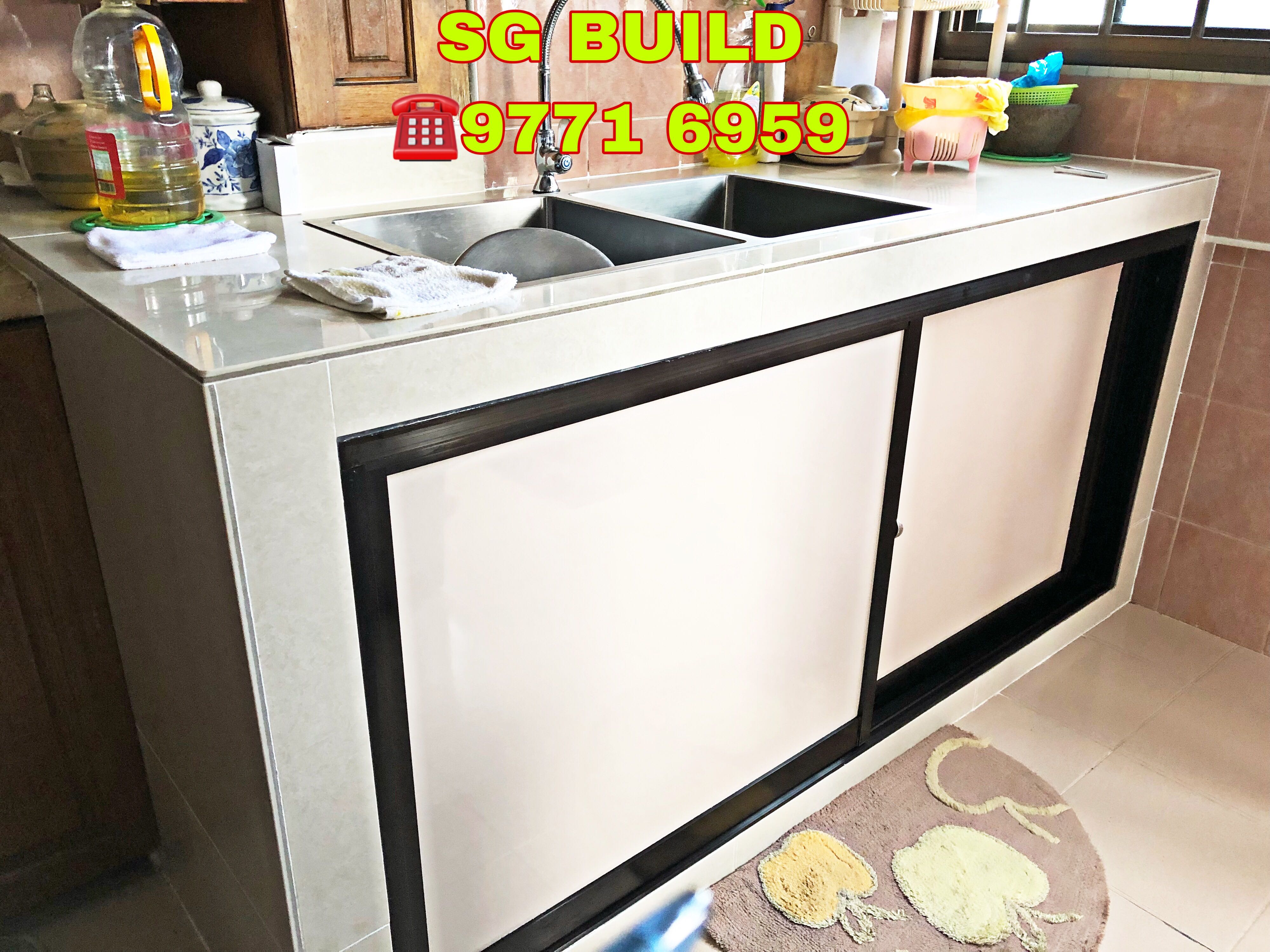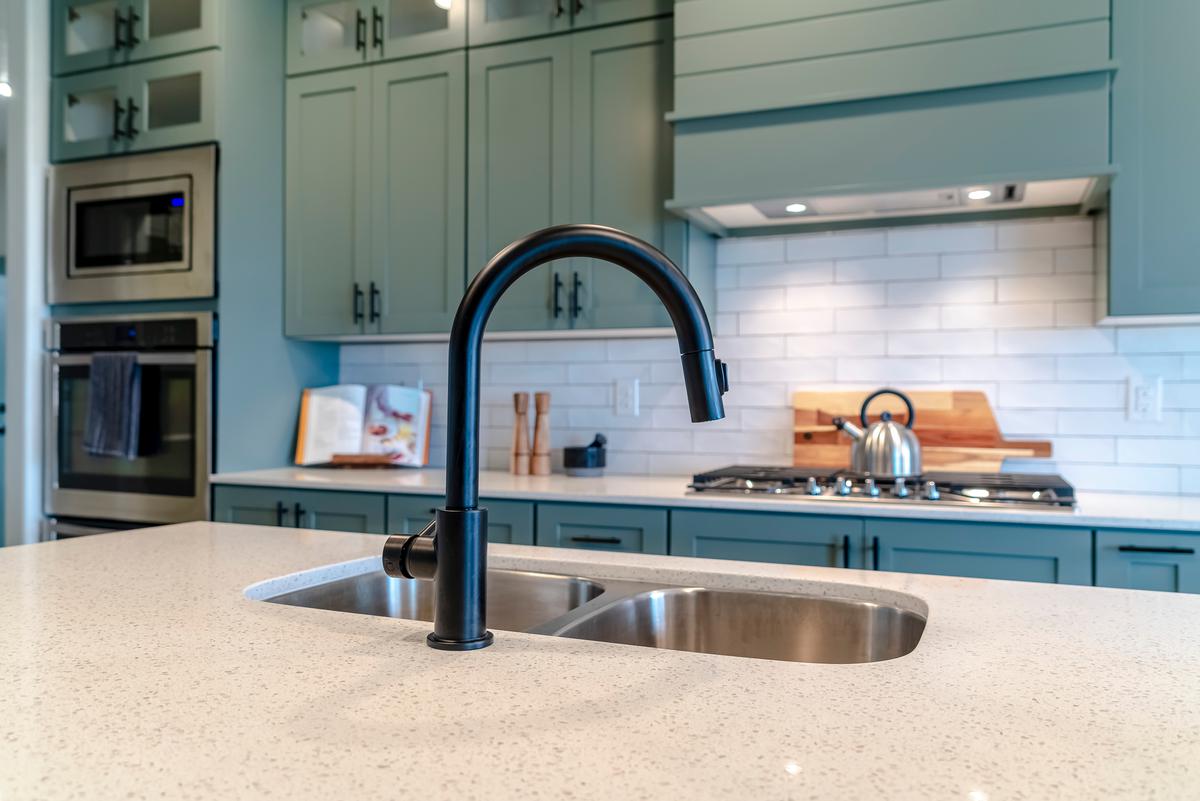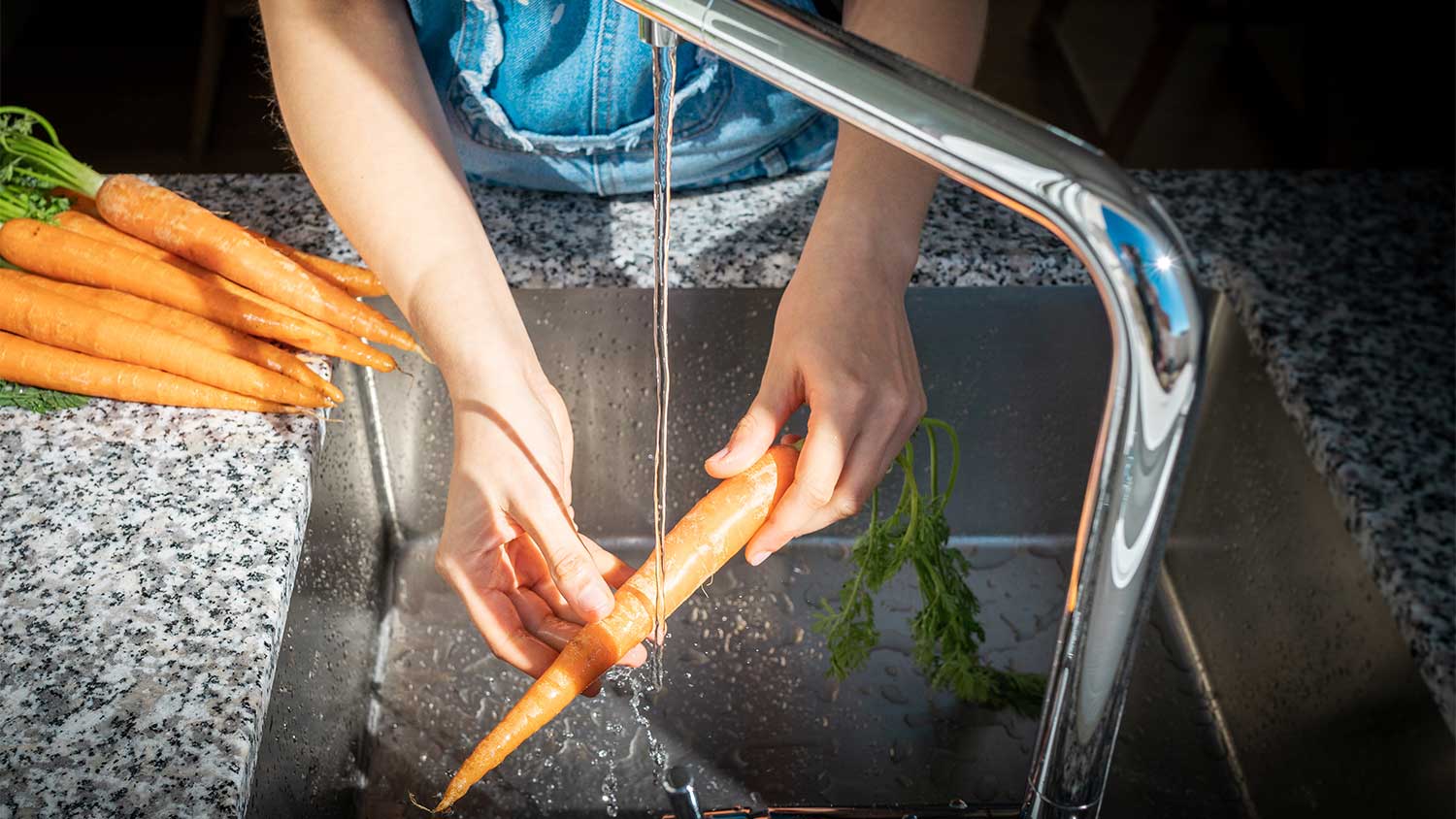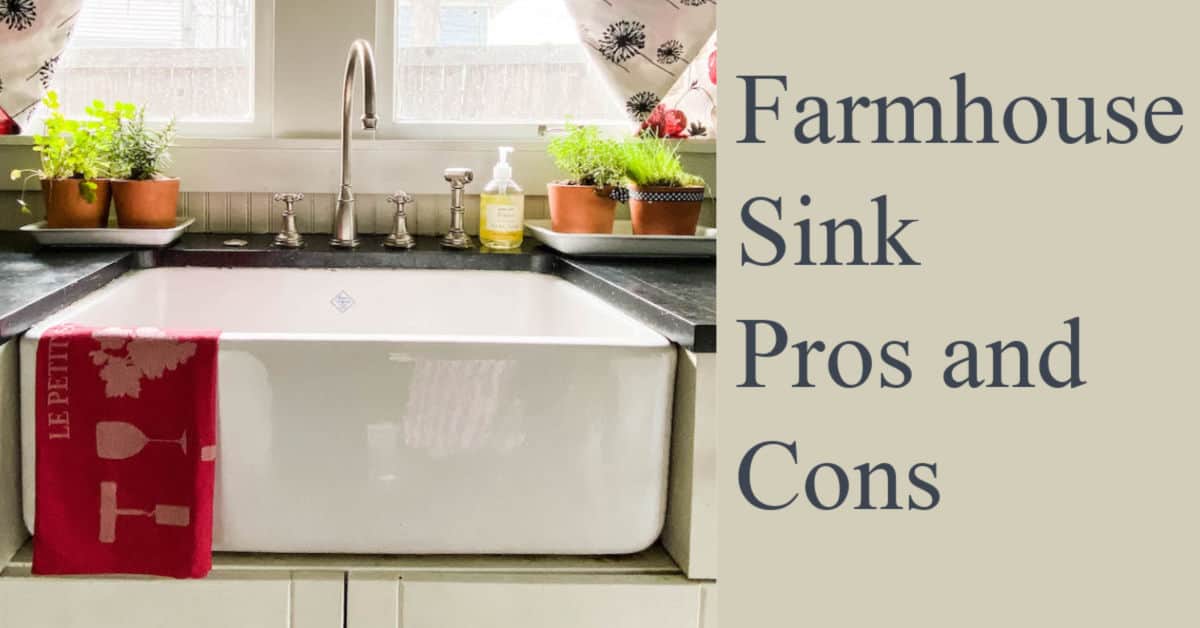When it comes to choosing a kitchen sink, there are many options available in the market. One unique and durable choice that has been gaining popularity in recent years is the concrete kitchen sink. However, as with any other material, there are both pros and cons to consider before making the investment. In this article, we will take a closer look at the top 10 main pros and cons of concrete kitchen sinks to help you determine if it is the right choice for your kitchen.Pros and Cons of Concrete Kitchen Sinks
Before we dive into the pros and cons, let's first understand what makes concrete a popular material for kitchen sinks. Concrete is a mixture of cement, water, and aggregates such as sand or gravel. It is known for its strength, durability, and versatility, making it a great choice for various applications. However, as with any material, it also has its own set of advantages and disadvantages when used for kitchen sinks.Concrete Kitchen Sink Advantages and Disadvantages
One of the main advantages of a concrete kitchen sink is its unique and customizable design. Concrete can be molded into different shapes and sizes, allowing for a customized sink that fits your specific kitchen layout and style. It also comes in a variety of colors, finishes, and textures, giving you the freedom to create a truly unique and personalized look. On the other hand, one of the drawbacks of concrete sinks is its weight. Concrete is a heavy material, and a sink made from it can weigh up to several hundred pounds. This can make installation and handling a bit more challenging and may require additional support from the cabinetry. It is also important to note that concrete is a porous material, which means it can absorb liquids and stains if not properly sealed and maintained.Benefits and Drawbacks of Concrete Kitchen Sinks
One of the most significant advantages of a concrete kitchen sink is its durability. Concrete is a highly durable material that can withstand heavy use and resist scratches, dents, and chipping. It is also heat-resistant, making it a great choice for hot pots and pans. With proper care and maintenance, a concrete sink can last for many years without showing signs of wear and tear. However, one of the cons of concrete sinks is that they can be costly. The materials and labor involved in constructing a concrete sink can be more expensive compared to other materials such as stainless steel or porcelain. But keep in mind that the durability and longevity of a concrete sink can help offset these costs in the long run.Concrete Kitchen Sink Pros and Cons: Is it the Right Choice for Your Kitchen?
Another advantage of a concrete kitchen sink is its resistance to chemicals and stains. Unlike other materials, concrete is not easily damaged by harsh chemicals or acidic substances. It also has a non-porous surface when properly sealed, making it less susceptible to staining. This makes it a great choice for busy kitchens where spills and messes are common. However, one of the cons of concrete sinks is that they can be prone to cracking if not installed properly. Proper installation, including proper reinforcement and support, is crucial to ensure the sink's stability and prevent any cracks from forming. It is also essential to use a high-quality sealant to prevent any water damage or discoloration over time.The Pros and Cons of Installing a Concrete Kitchen Sink
Aside from its durability and unique design options, another advantage of a concrete kitchen sink is its eco-friendliness. Concrete is a sustainable material that can be made from recycled materials, making it a greener option for your kitchen. It is also a long-lasting material, reducing the need for frequent replacements and reducing waste in the long run. However, one of the drawbacks of concrete sinks is their maintenance. As mentioned earlier, concrete is a porous material that can absorb liquids and stains. This means that regular sealing and cleaning are necessary to keep the sink looking its best. This can be a time-consuming and tedious task for some homeowners.Concrete Kitchen Sink: Advantages and Disadvantages to Consider
Another advantage of a concrete kitchen sink is its sound insulation properties. The thickness and density of concrete can help reduce noise from running water or dishes clanking, making it a great choice for open-concept kitchens or homes with multiple levels. It also has a smooth and non-porous surface, making it easy to clean and maintain. However, one of the cons of concrete sinks is their weight and installation requirements. As mentioned earlier, concrete sinks can be heavy, and proper reinforcement and support are necessary to prevent any damage to your cabinetry or countertops. This can add to the overall cost and complexity of installation, especially if you are replacing an existing sink.Is a Concrete Kitchen Sink Worth the Investment? Pros and Cons to Consider
Lastly, one of the main advantages of a concrete kitchen sink is its aesthetic appeal. Concrete offers a unique and modern look that can add character and personality to your kitchen. It can also be paired with different materials such as wood or metal to create a visually striking and functional space. However, one of the drawbacks of concrete sinks is that they are not as readily available as other materials. Custom concrete sinks can take longer to produce and may require a longer lead time for installation. This can be an issue for those who need a sink quickly or have a strict renovation timeline.Concrete Kitchen Sink: Pros and Cons of a Unique and Durable Choice
In conclusion, concrete kitchen sinks offer many unique advantages and have some drawbacks to consider before making the investment. Its durability, customizable design, eco-friendliness, and sound insulation properties make it a popular choice among homeowners. However, the weight, cost, maintenance, and installation requirements may not be suitable for everyone. It is essential to weigh these pros and cons carefully and consider your specific needs and preferences before deciding if a concrete kitchen sink is the right choice for your home.The Good and Bad of Concrete Kitchen Sinks: Pros and Cons to Know
Overall, a concrete kitchen sink can be a beautiful and functional addition to your kitchen, but it may not be the best option for everyone. It is crucial to thoroughly research and consider all the pros and cons before making a decision. If you decide to go for a concrete sink, make sure to hire a reputable and experienced contractor to ensure proper installation and sealant application. With proper care and maintenance, a concrete kitchen sink can be a long-lasting and unique feature in your home. Concrete Kitchen Sink: Advantages and Disadvantages for Your Home
The Pros and Cons of Installing a Concrete Kitchen Sink
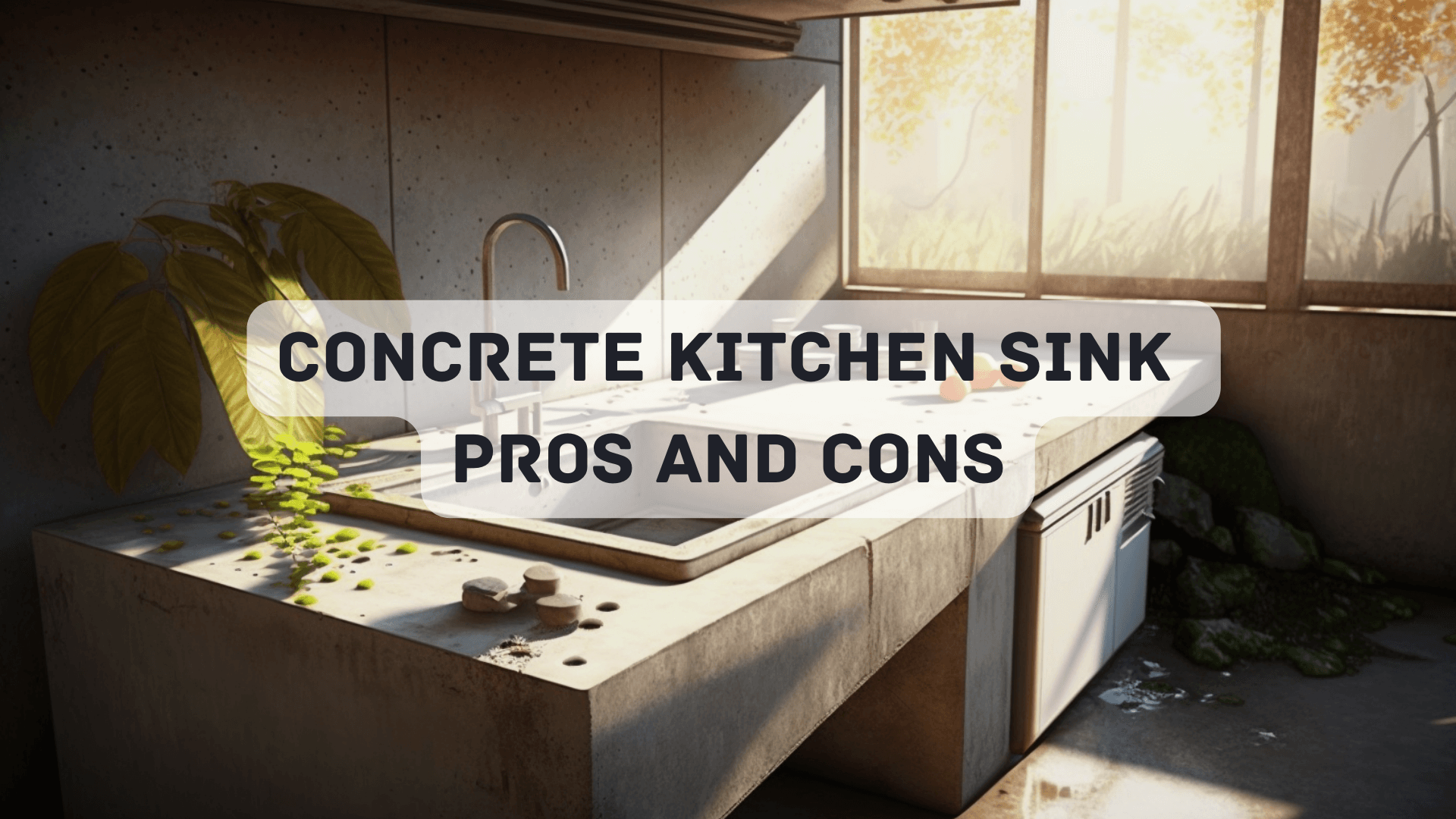
Pros:
 Durability
: One of the biggest advantages of a concrete kitchen sink is its durability. Concrete is a strong and resilient material that can withstand heavy use and resist scratches, dents, and stains. This makes it an ideal choice for busy kitchens where the sink is used frequently.
Customization
: Another benefit of a concrete kitchen sink is its versatility in design. Unlike traditional materials like stainless steel or porcelain, concrete can be molded into any shape and size, allowing for endless customization options. This means you can have a sink that perfectly fits your kitchen's layout and style.
Heat and Chemical Resistant
: Concrete is also highly resistant to heat and chemicals, making it a great choice for a kitchen sink. You can place hot pots and pans directly into the sink without worrying about damaging it. Additionally, concrete is not affected by harsh chemicals, making it easy to clean and maintain.
Unique Aesthetic
: Concrete sinks have a unique and stylish look that can add character to any kitchen. They come in a variety of colors and finishes, giving you the opportunity to create a one-of-a-kind focal point in your kitchen. Whether you want a modern, industrial look or a more rustic feel, a concrete sink can help you achieve it.
Durability
: One of the biggest advantages of a concrete kitchen sink is its durability. Concrete is a strong and resilient material that can withstand heavy use and resist scratches, dents, and stains. This makes it an ideal choice for busy kitchens where the sink is used frequently.
Customization
: Another benefit of a concrete kitchen sink is its versatility in design. Unlike traditional materials like stainless steel or porcelain, concrete can be molded into any shape and size, allowing for endless customization options. This means you can have a sink that perfectly fits your kitchen's layout and style.
Heat and Chemical Resistant
: Concrete is also highly resistant to heat and chemicals, making it a great choice for a kitchen sink. You can place hot pots and pans directly into the sink without worrying about damaging it. Additionally, concrete is not affected by harsh chemicals, making it easy to clean and maintain.
Unique Aesthetic
: Concrete sinks have a unique and stylish look that can add character to any kitchen. They come in a variety of colors and finishes, giving you the opportunity to create a one-of-a-kind focal point in your kitchen. Whether you want a modern, industrial look or a more rustic feel, a concrete sink can help you achieve it.
Cons:
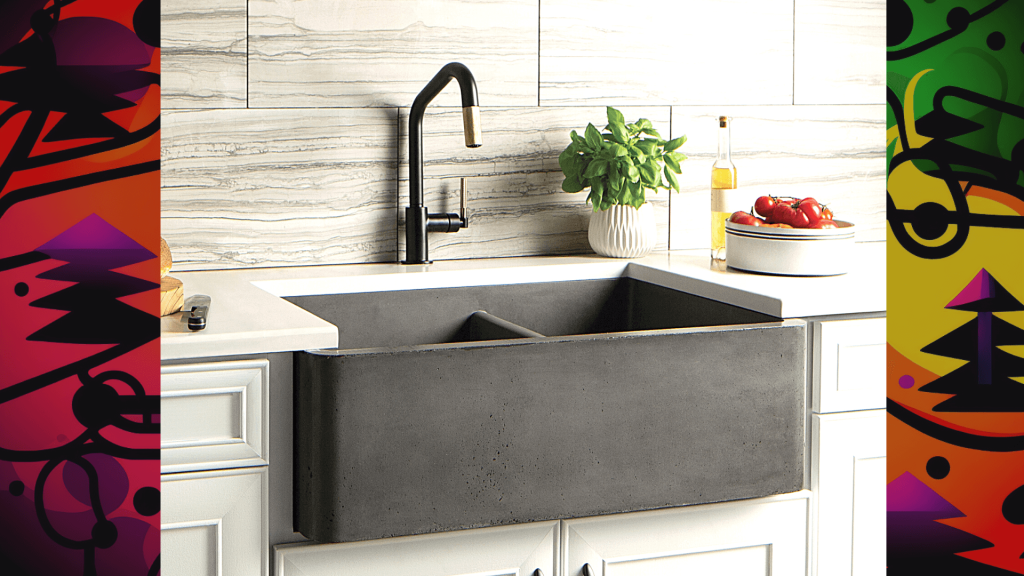 High Maintenance
: While concrete sinks are durable, they do require regular maintenance to keep them looking their best. This includes sealing the sink at least once a year to prevent stains and water damage. Additionally, you should avoid using harsh chemicals or abrasive cleaners on the sink to prevent damage to the sealant.
Weight
: Concrete sinks are heavy and may require additional structural support to install. This can add to the cost and complexity of the installation process. It's important to consult with a professional to ensure your kitchen can support the weight of a concrete sink.
Cost
: Concrete sinks can be more expensive than traditional sink materials. This is due to the customizations and additional labor required for installation. However, the durability and unique aesthetic of a concrete sink may outweigh the initial cost for some homeowners.
In conclusion, a concrete kitchen sink has its own set of pros and cons. While it offers durability, customization options, and a unique aesthetic, it also requires regular maintenance and may come with a higher price tag. Consider your personal preferences and needs when deciding if a concrete sink is the right choice for your kitchen.
High Maintenance
: While concrete sinks are durable, they do require regular maintenance to keep them looking their best. This includes sealing the sink at least once a year to prevent stains and water damage. Additionally, you should avoid using harsh chemicals or abrasive cleaners on the sink to prevent damage to the sealant.
Weight
: Concrete sinks are heavy and may require additional structural support to install. This can add to the cost and complexity of the installation process. It's important to consult with a professional to ensure your kitchen can support the weight of a concrete sink.
Cost
: Concrete sinks can be more expensive than traditional sink materials. This is due to the customizations and additional labor required for installation. However, the durability and unique aesthetic of a concrete sink may outweigh the initial cost for some homeowners.
In conclusion, a concrete kitchen sink has its own set of pros and cons. While it offers durability, customization options, and a unique aesthetic, it also requires regular maintenance and may come with a higher price tag. Consider your personal preferences and needs when deciding if a concrete sink is the right choice for your kitchen.


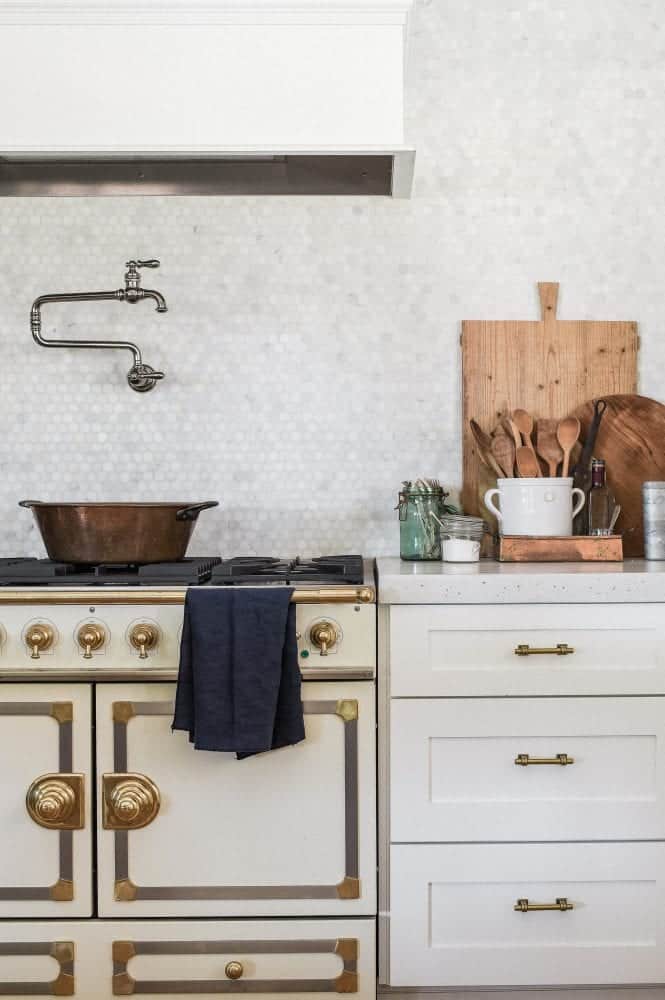

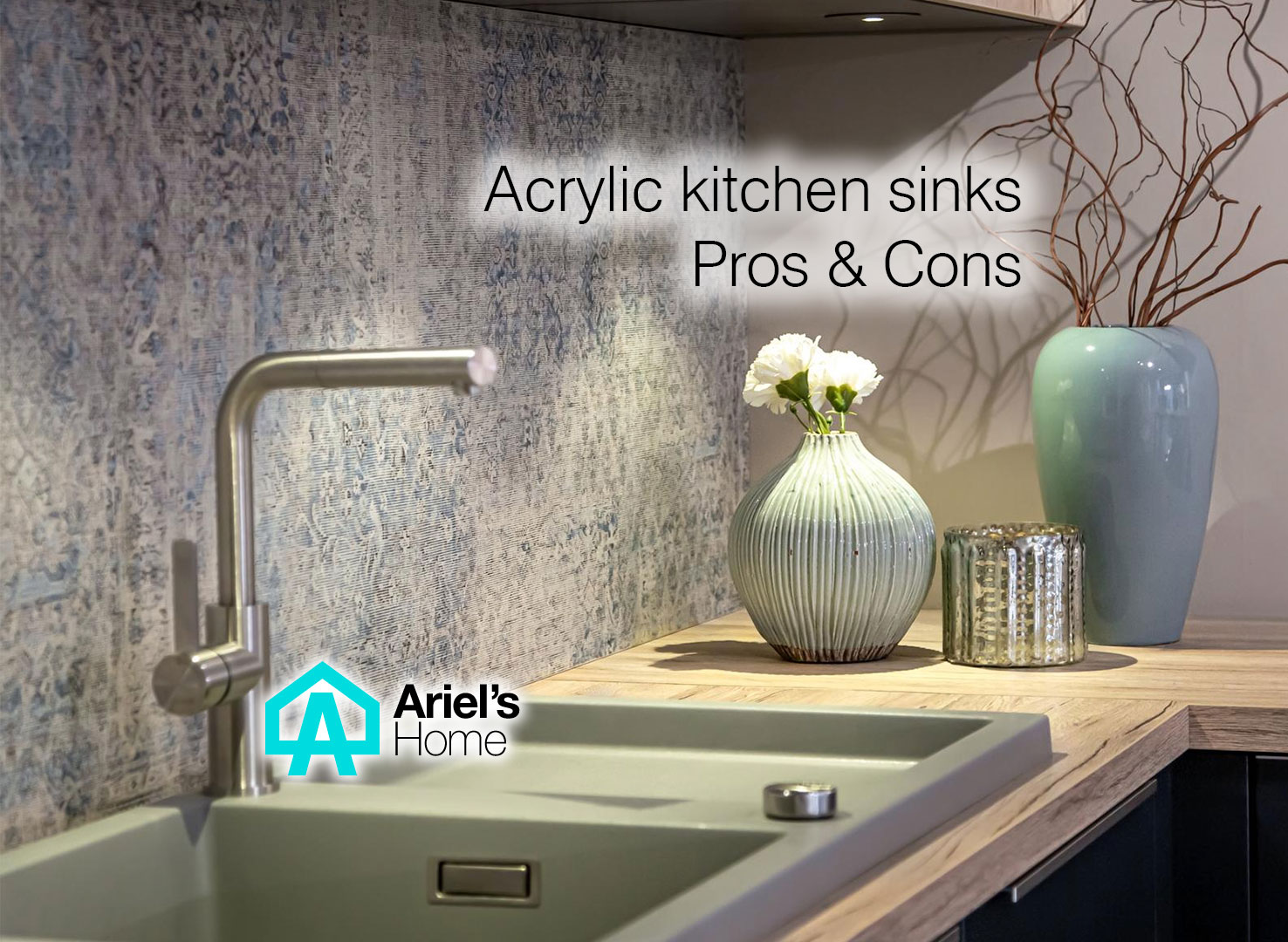

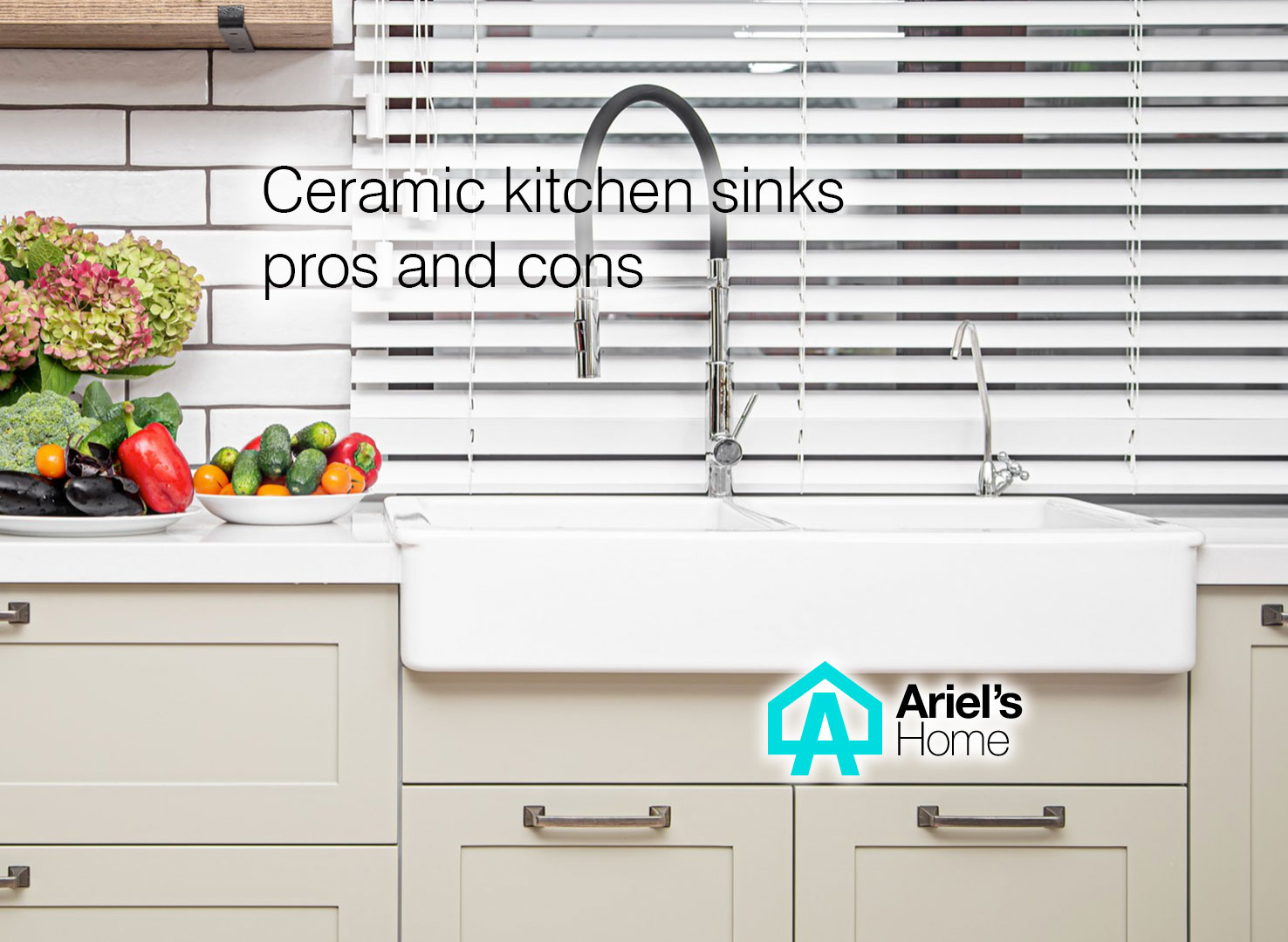

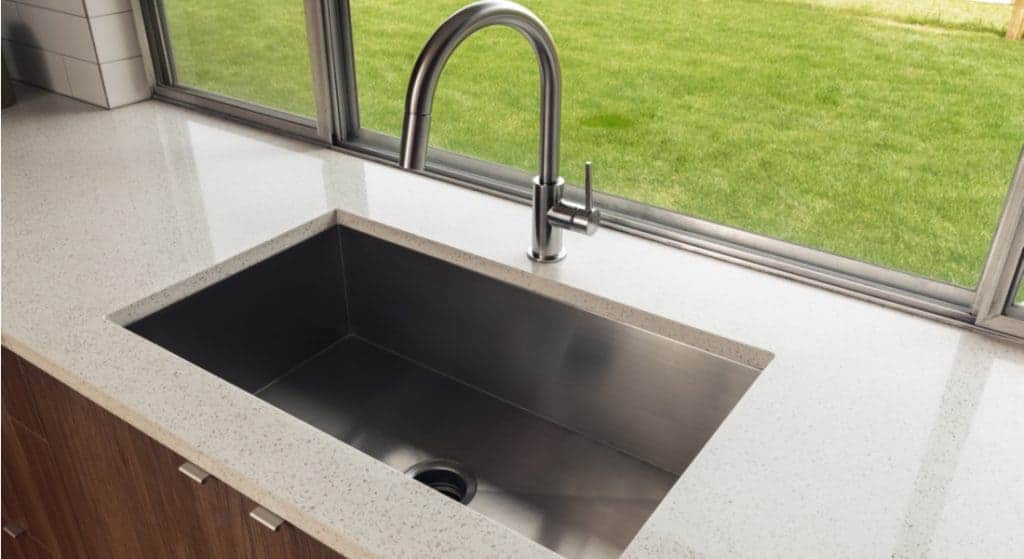
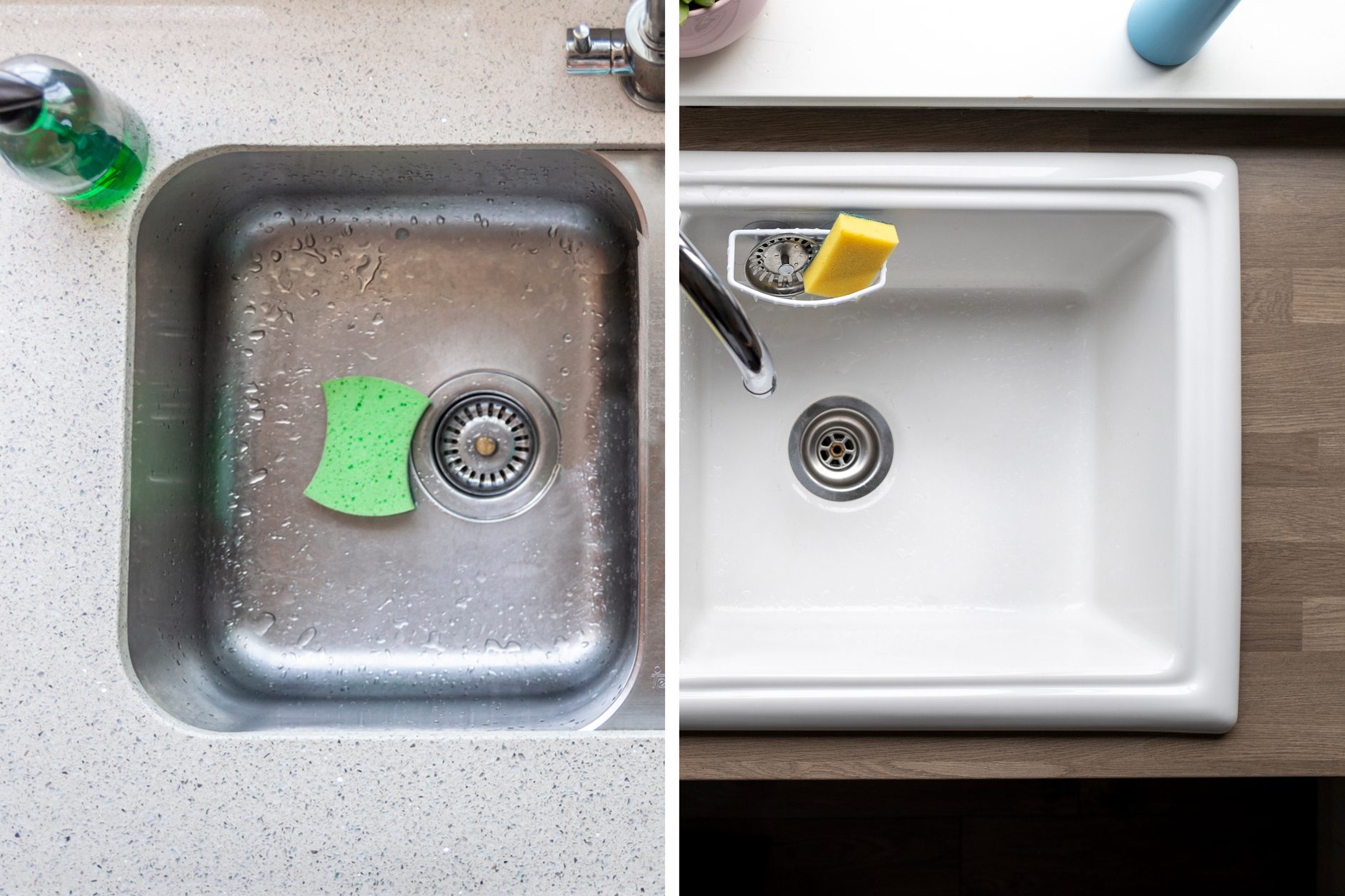


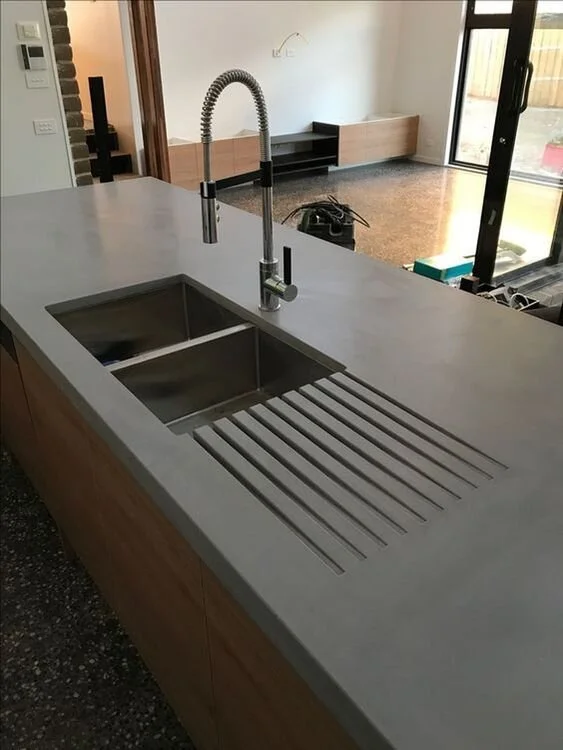








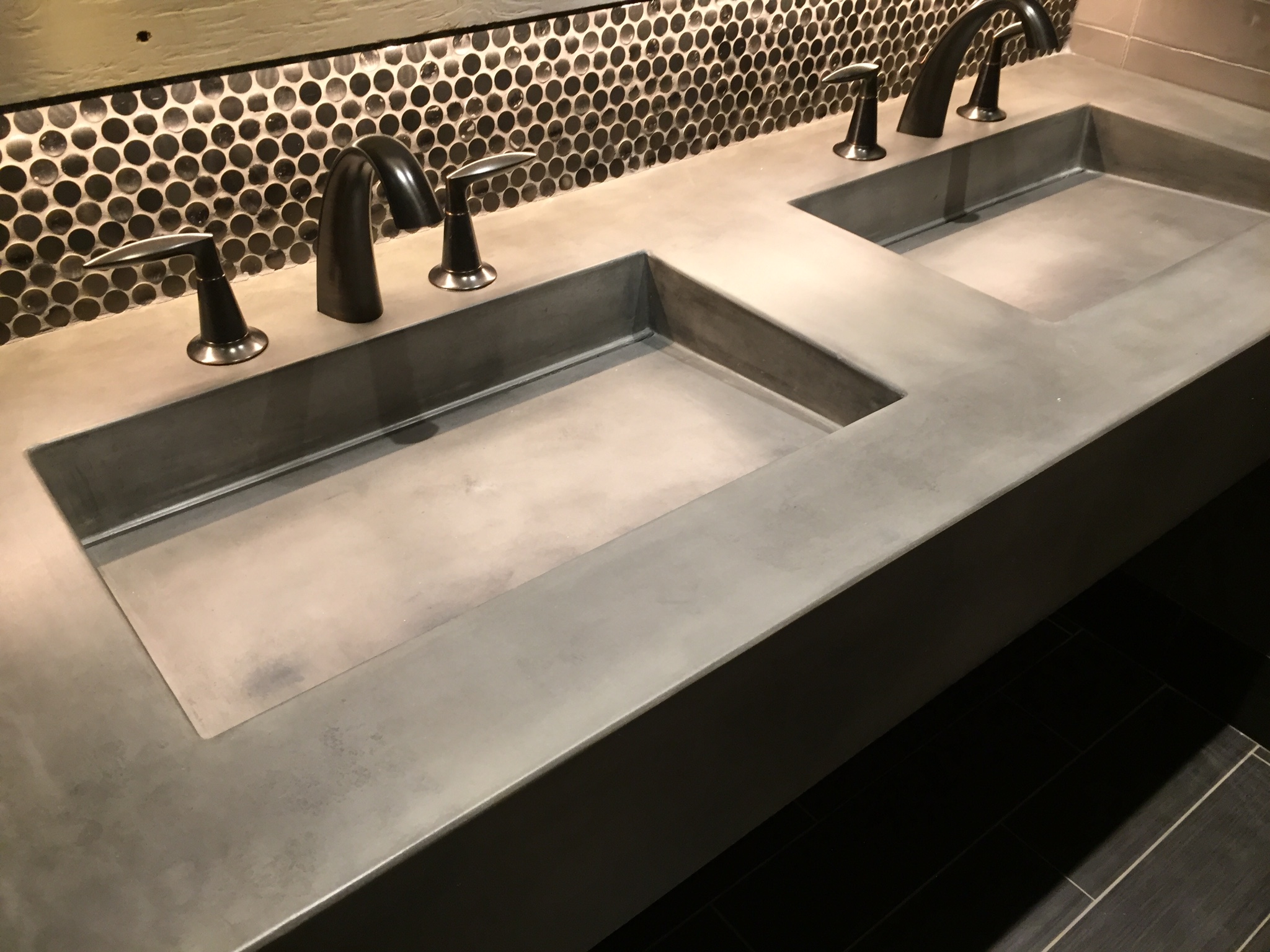




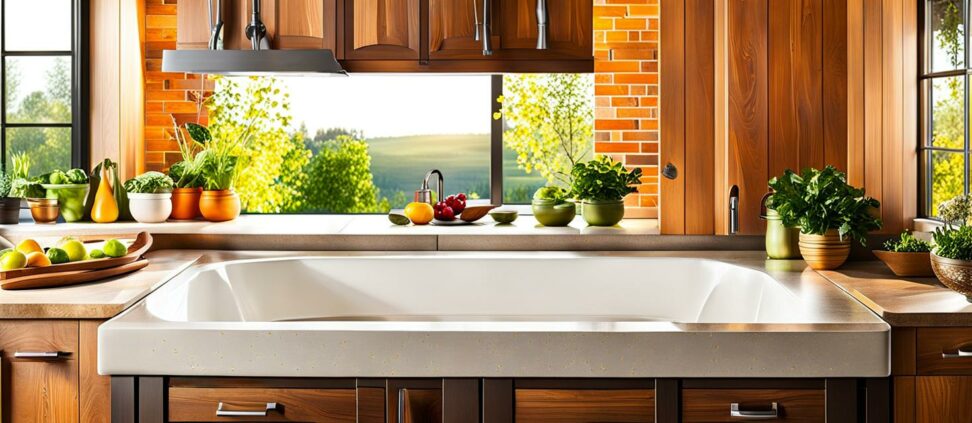


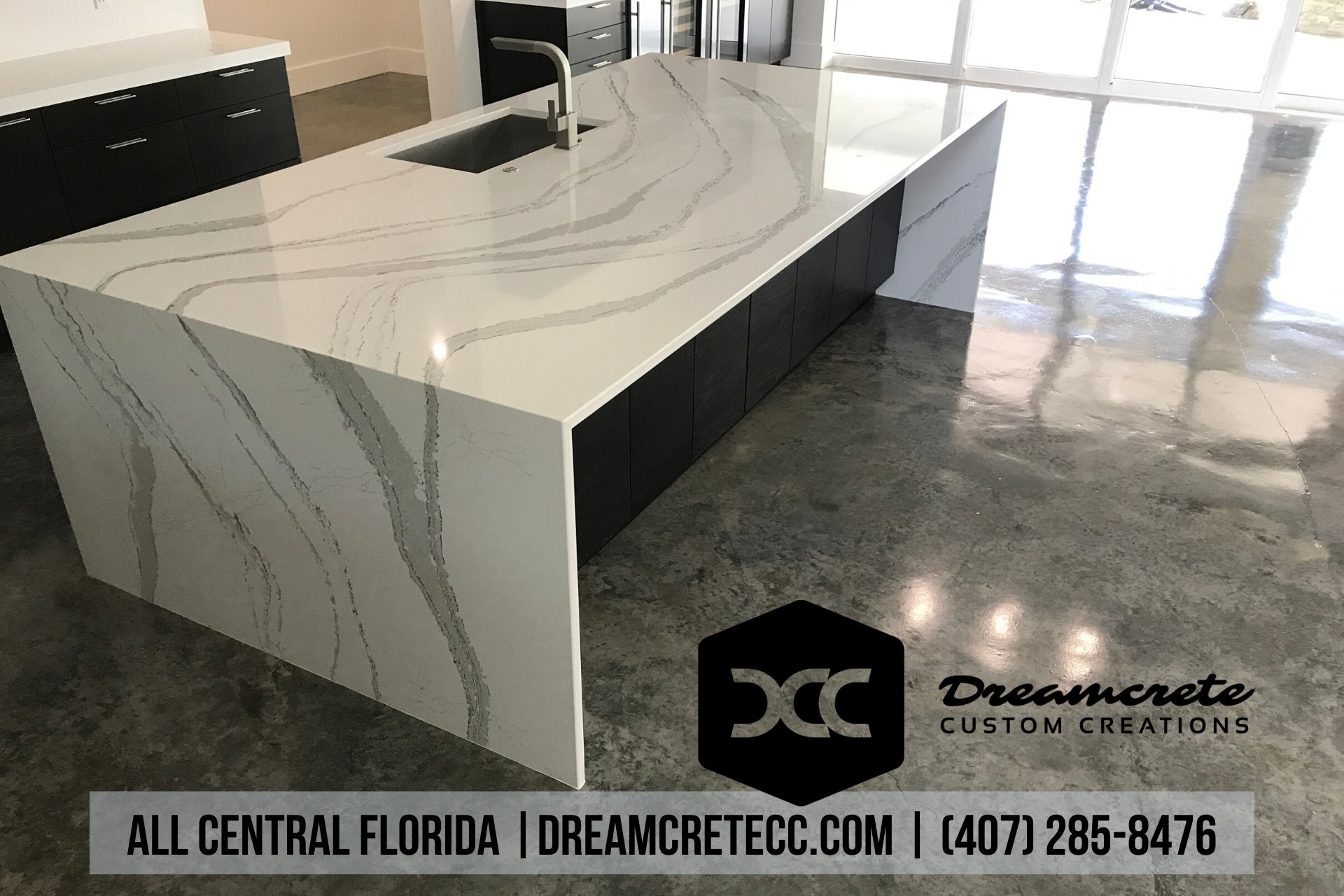
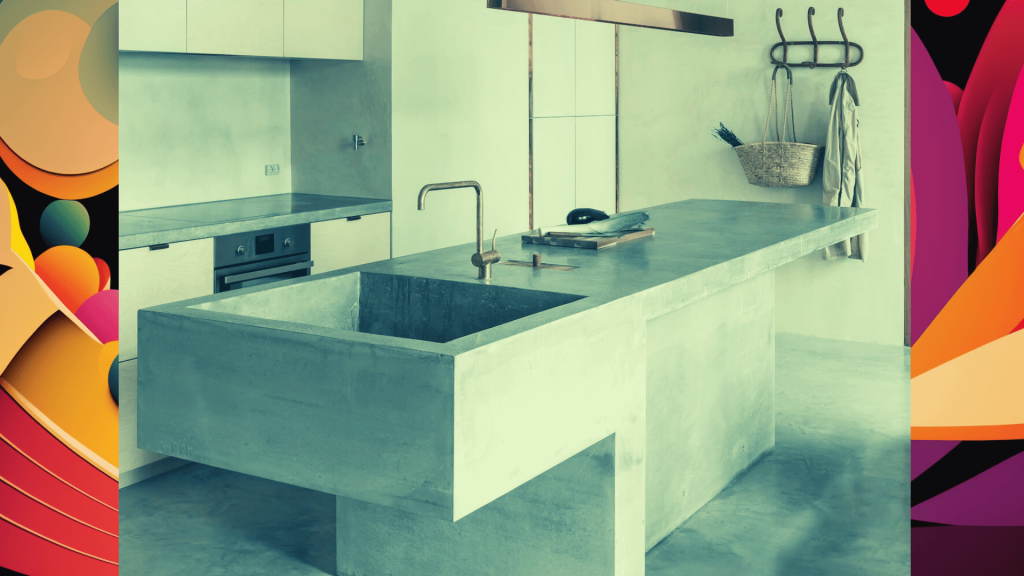
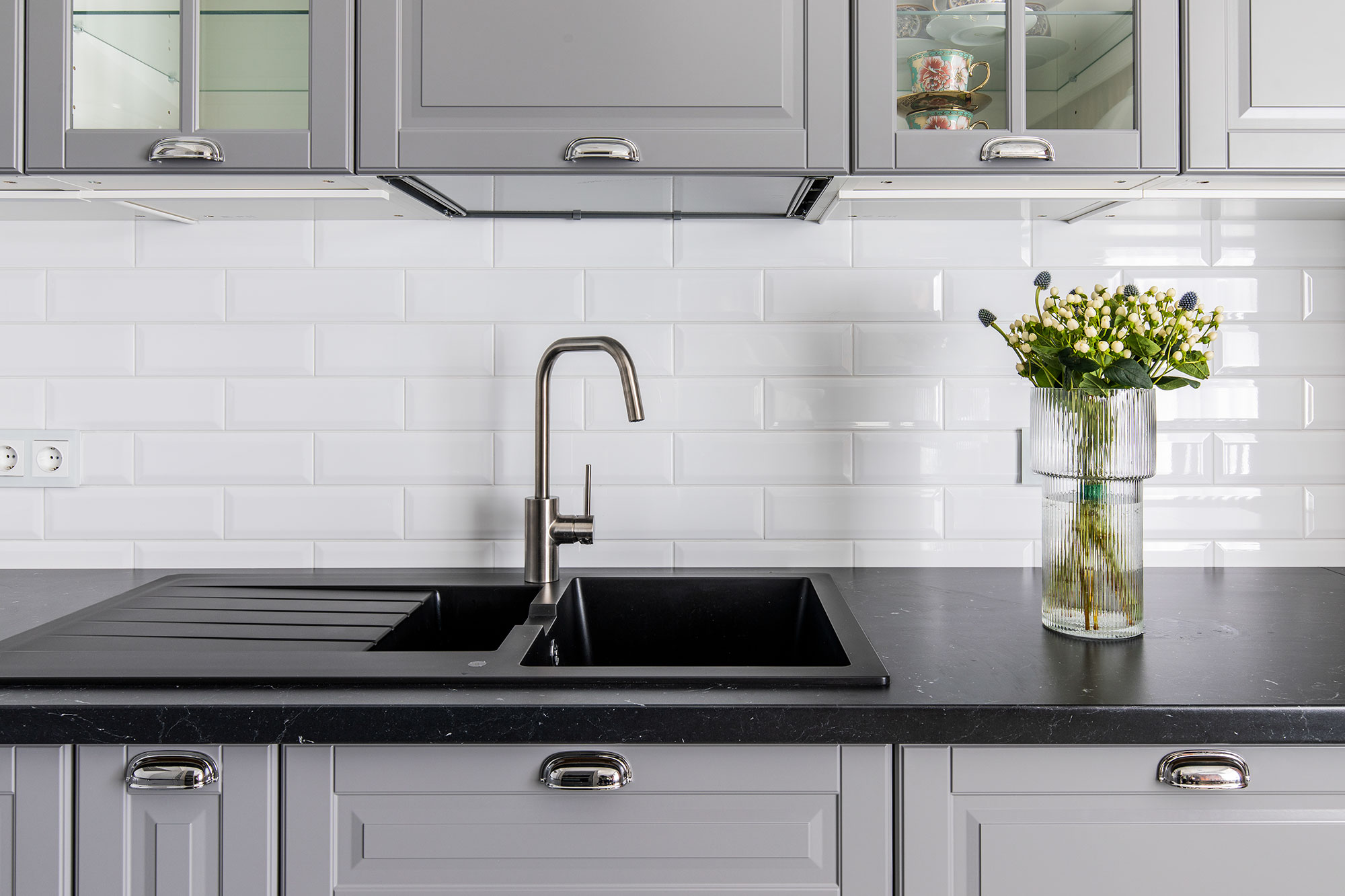
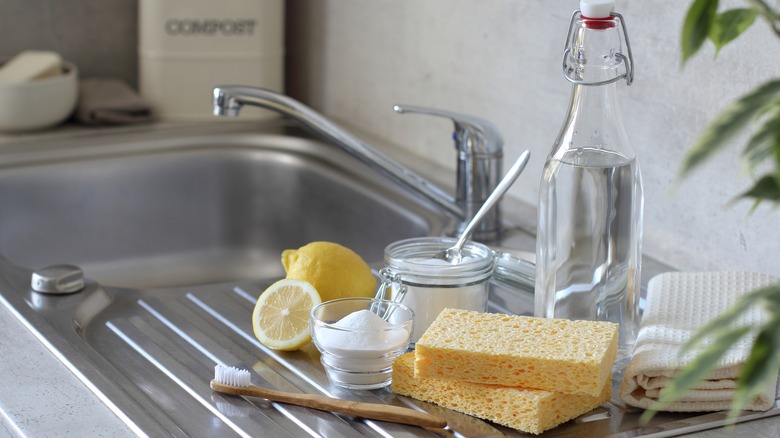






:max_bytes(150000):strip_icc()/basic-kitchen-sink-types-1821207-hero-54418ed30f9540a9aa6148a1394f33a6.jpg)



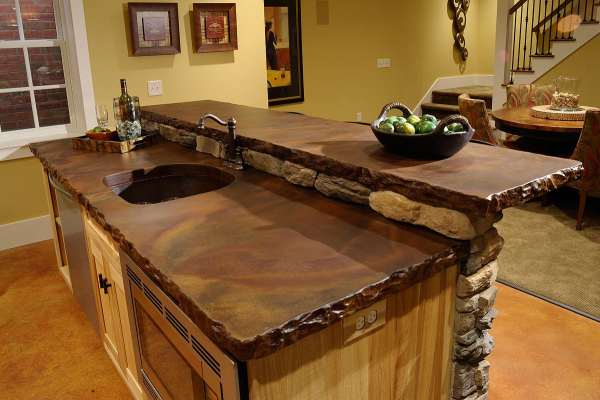
:max_bytes(150000):strip_icc()/GettyImages-174841379-5a85d100ba61770036d9f06c.jpg)

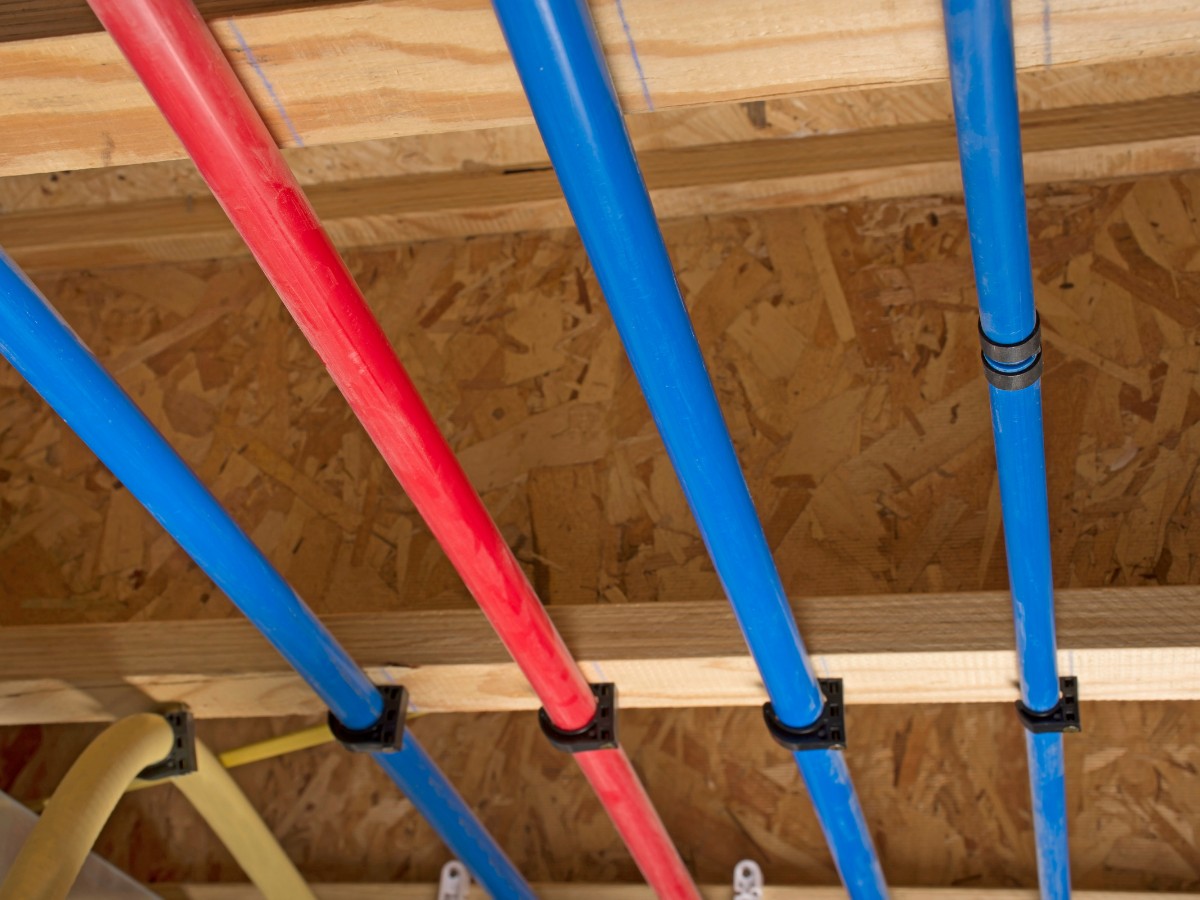


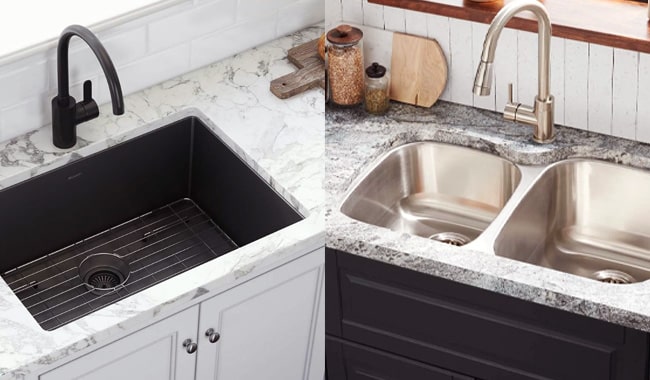
:max_bytes(150000):strip_icc()/Low-DivideKitchenSink-5a763707119fa8003735e84a.jpg)







